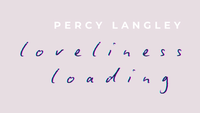Reimagining the Past: Grandpa’s Shirts and the Art of Upcycling Fashion
In an age where sustainability is no longer an afterthought but a necessity, the British label Grandpa’s Shirts is proving that true style isn’t about what’s new—it’s about what’s reimagined. By breathing fresh life into existing garments, this innovative brand is transforming discarded men's shirts into one-of-a-kind women's shirts, tops to be treasured by the new owner, all while redefining what it means to dress sustainably.
A Love for Style, A Commitment to Change
Founder of Grandpa’s Shirts, Gaby Owens, has always had a keen eye for curating outfits. Gaby's journey initially started in fashion buying, the slow, reflective periods of the pandemic lockdowns that led her back to design—this time, with a mission. “I currently only work by using up-cycled fabrics, which comes with many challenges but means I’m putting the planet first with every design I make,” Owens explains.

The Art of the Upcycled Shirt
Each piece from Grandpa’s Shirts tells a story. The brand meticulously sources vintage and discarded textiles—favoring natural fibers like cotton, linen, and newly introduced upcycled silk—to craft unique, reimagined shirts. No two pieces are alike, giving customers a completely original wardrobe addition.
Beyond the aesthetic appeal, the upcycling process significantly reduces waste. “Every scrap is saved,” the designer shares. “My new flower corsages can utilize a small piece of fabric that would have otherwise gone in the bin.” This approach not only minimizes textile waste but also challenges the industry’s reliance on mass production and disposable fashion.
A Hybrid Future for Fashion
Looking ahead, Grandpa’s Shirts sees British fashion evolving into a hybrid model—where secondhand, rental, and high-quality new garments coexist seamlessly. “My goal is to become the go-to brand for all things shirting, whether that be a quality ‘new’ piece or your upcycled one-of-a-kind shirt,” the designer notes. It’s an ambitious vision, but one that aligns perfectly with the growing demand for ethical fashion.
Balancing Creativity, Profitability, and Ethics
Scaling an upcycled business model is no easy feat, and Grandpa’s Shirts acknowledges the challenges that come with prioritising sustainability over conventional profitability. However, by blending upcycled creations with select new pieces made from responsible materials, the brand is working toward a more scalable, sustainable future. “Upcycling isn’t the most profitable business model, but there are so many benefits—one of my favorites being that every customer gets a completely one-of-a-kind piece.”
The Role of the Conscious Consumer
At the heart of Grandpa’s Shirts’ mission is education and positivity. Rather than shaming consumers for past shopping habits, the brand encourages them to embrace a more mindful approach to fashion. “I try to be positive, share all the benefits around curating a more sustainable wardrobe rather than shaming people that haven’t been educated on the more detrimental parts of the fashion industry,” says Owens.

By shifting the narrative from guilt to empowerment, Grandpa’s Shirts is making sustainability not just an obligation but an aspiration. With every carefully reworked piece, the brand is proving that the most forward-thinking fashion isn’t about what’s new—it’s about how we reimagine what already exists.



Leave a comment